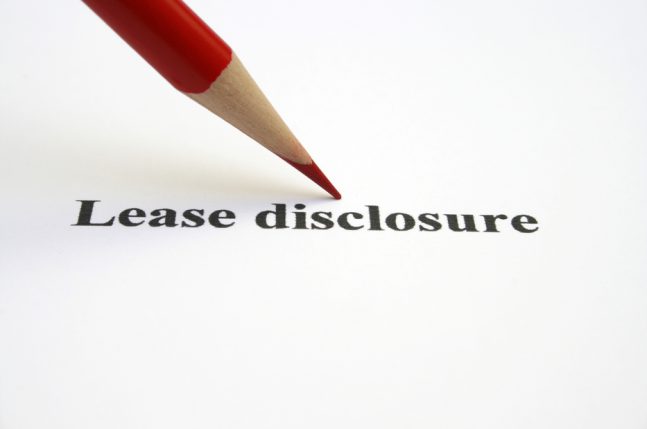
Can I get out of a commercial lease because I did not receive a disclosure statement?
In South Australia, commercial tenants are protected by the Retail and Commercial Leases Act, 1995 (RCLA). The RCLA requires in Section 12 that a prospective tenant receive a Disclosure Statement from the landlord before the lease is signed. A Disclosure Statement is a written document in a format prescribed by the RCLA regulations which contains the information about the premises and the proposed lease set out in section 12(2) of the RCLA.
If you are negotiating the terms of a commercial lease it is vital that you have a copy of the proposed formal lease and the Disclosure Statement. See our articles on “Commercial Lease Negotiation Essentials – Part 1” and “Commercial Lease Negotiation Essentials – Part 2“.
The RCLA does not apply to every lease. It only applies where:
- The lease entered into after 30 November 1995;
- The tenant sells goods or provides services to the public from the premises;
- The my annual rent is less than $400 000; and
- The lease is longer than one month.
and so where the RCLA does not apply, there is no need to provide a prospective tenant with a Disclosure Statement.
Where the RCLA does apply it is important for a landlord or the landlord’s agent to have a prospective tenant sign an “Acknowledgement of Receipt” of the Disclosure Statement before signing the lease or a document that binds the prospective tenant to enter into the lease (such as an Agreement to Lease) – section 12(4) of the RCLA. Signing the Acknowledgement does not bind the prospective tenant to the lease but it does protect the landlord against an allegation that the tenant did not receive a Disclosure Statement.
If the Disclosure Statement contains significantly false or misleading information, or if you never received a Disclosure Statement at all, the Magistrates Court can make the one or more of the following orders:
- Terminating the lease;
- Varying the terms of the lease;
- Requiring the landlord to refund some or all of your money; and/or
- Requiring the landlord to pay compensation to you.
However the RCLA also states that these orders cannot be made against a landlord who has acted honestly and reasonably and ought to be excused. The Magistrates Court can also not make these orders when the tenant has not been substantially prejudiced (section 12(6) RCLA).
What this means for you, as a commercial tenant, is that just because you did not receive a Disclosure Statement prior to entering into a lease, or the Disclosure Statement you received contained false or misleading information, you cannot automatically get out of your lease. You will also have to show what you would have done differently had you been given the correct information.
If you can show that you would never have entered into the lease or would have insisted on other terms in your lease agreement, you will be able to apply for assistance from the Magistrates Court.
For further information please contact our commercial property conveyancers on 8362 6400 or email Jason Meyer. Join our mailing list to receive updates and advice on current issues.







